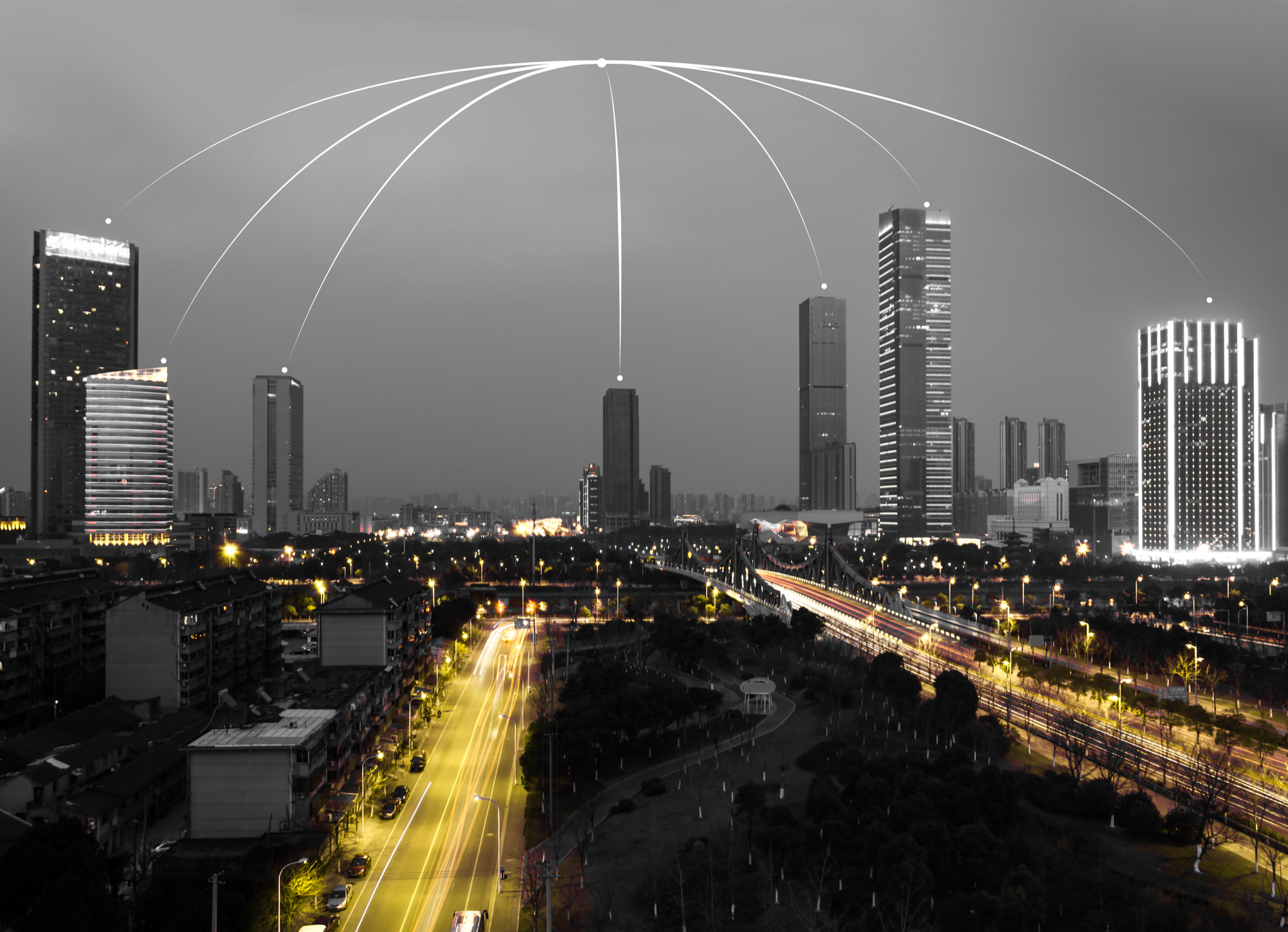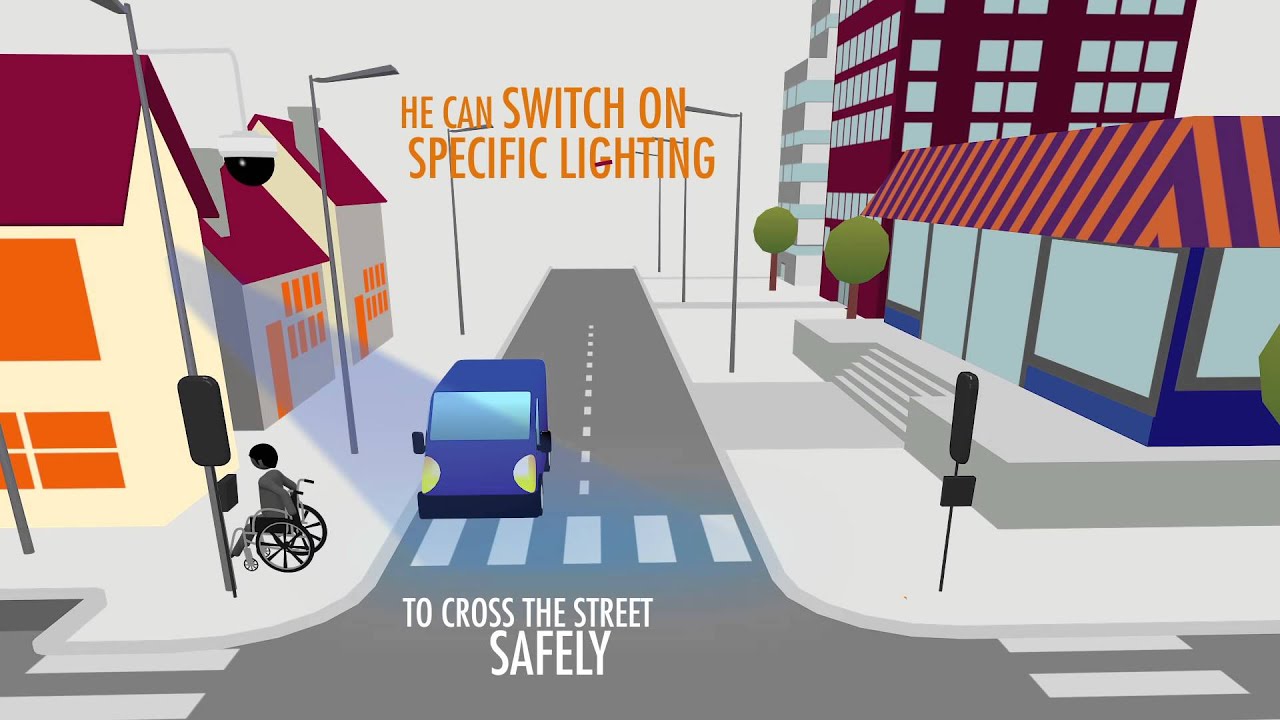Smart Cities - Harnessing Technology To Build Better Urban Environments
Smart cities are becoming more popular around the world as cities try to use technology to improve their efficiency, sustainability, and residents' quality of life.
Author:George EvansMar 09, 20237 Shares283 Views

Smart citieshave become increasingly popular around the world as urban areas seek to leverage technology to improve efficiency, sustainability, and quality of life for residents.
The concept of a smart city involves integrating information and communication technologies (ICT) into a city's infrastructure and services to enhance communication, mobility, security, energy consumption, and more.
This integration of technology aims to optimize the functioning of the city and to provide better services to its inhabitants.
What Is A Smart City?
A Smart City is a modern urban area that leverages various technologies and data analytics to enhance the quality of life for its residents and improve its overall sustainability.
By integrating advanced digital technologies, such as the Internet of Things (IoT), big data, and artificial intelligence (AI), Smart Cities can optimize various aspects of urban life, including transportation, energy, waste management, public safety, and healthcare.
The goal of a Smart City is to create an environment that is more efficient, more livable, and more sustainable. It achieves this by using technology to make better decisions and by giving citizens access to more information, services, and resources.
In a Smart City, data is collected from various sources and analyzed to gain insights that can be used to optimize city services and infrastructure. This data-driven approach can help to reduce waste, lower costs, improve safety, and enhance the overall quality of life for citizens.
However, a Smart City is not just about technology; it is also about people. A Smart City is designed with the needs of its citizens in mind, and it provides a platform for citizens to engage with the city and with each other. By encouraging citizen participation, Smart Cities can create a more inclusive and democratic urban environment.
Overall, a Smart City is a vision of the future of urban living, where technology and people work together to create a better world. The concept of Smart Cities is gaining momentum worldwide, as cities look for ways to address the challenges of urbanization and provide a high quality of life for their citizens.

What is a smart city ?
How Do Smart Cities Work?
Smart Cities work by collecting and analyzing data from various sources to gain insights that can be used to optimize city services and infrastructure. This data is gathered through sensors and other devices that are connected to the Internet of Things (IoT), which allows for real-time monitoring of various aspects of urban life.
For example, a Smart City might use sensors to monitor traffic patterns and adjust traffic lights in real-time to reduce congestion. It might also use data from smart waste management systems to optimize waste collection routes and reduce the amount of waste sent to landfill.
In addition to collecting and analyzing data, Smart Cities also provide citizens with access to information and services through various digital platforms. This might include mobile apps that allow citizens to report issues such as potholes or broken streetlights, or online portals that provide access to city services and resources.
Technologies Used In Smart Cities
Smart cities use a variety of technologies to collect, analyze, and use data to make decisions. Some of the technologies used in smart cities include:
Internet Of Things (IoT)
IoT is the backbone of smart cities. It refers to the connection of everyday devices to the internet, enabling them to communicate with each other and share data. IoT is used in smart cities to monitor various aspects of urban living, such as traffic flow, air quality, and energy consumption.
Big Data Analytics
Big data analytics involves the collection and analysis of large amounts of data to uncover patterns and insights. In smart cities, big data analytics is used to understand the behavior of citizens and optimize urban services.
Artificial Intelligence (AI)
AI is used in smart cities to create predictive models that can forecast future events and trends. AI is used in a variety of smart city applications, such as traffic management and public safety.
Benefits Of Smart Cities
Smart cities offer a wide range of benefits to their citizens, including:
Improved Quality Of Life
Smart cities use technology to create a more livable urban environment. By optimizing transportation, energy consumption, and waste management, smart cities can improve the quality of life of their citizens.
Increased Efficiency
Smart cities use technology to optimize various urban services, such as public transportation and waste management. By using data and analytics to make decisions, smart cities can improve efficiency and reduce costs.
Sustainable Urban Development
Smart cities aim to create a sustainable urban environment that minimizes the impact on the environment. By optimizing energy consumption and reducing waste, smart cities can create a more sustainable future.
Challenges Facing Smart Cities
While smart cities offer many benefits, they also face numerous challenges. Some of the challenges facing smart cities include:
Security And Privacy
Smart cities collect and use large amounts of data, which raises concerns about security and privacy. Citizens may be reluctant to share personal information if they do not trust the security measures in place.
Cost
Building a smart city requires a significant investment in technology and infrastructure. Many cities may not have the resources to invest in smart city technology.
Complexity
Smart cities are complex systems that require coordination between various stakeholders, including government agencies, businesses, and citizens. The complexity of smart cities can make it difficult to implement and manage.
People Also Ask
What Are The Benefits Of Smart Cities?
Smart cities have many benefits, including improved sustainability, increased efficiency, and enhanced quality of life for citizens.
What Technologies Are Used In Smart Cities?
Smart cities use a variety of technologies such as Internet of Things (IoT), sensors, artificial intelligence, and big data analytics to improve services and infrastructure.
How Are Citizens Involved In The Development Of Smart Cities?
Citizen engagement is an important aspect of smart city development. Citizens can be involved through public forums, online platforms, and community outreach initiatives.
What Are Some Examples Of Successful Smart City Projects?
There are many successful smart city projects around the world, such as Barcelona's use of smart parking and waste management systems, and Amsterdam's smart grid for energy management.
What Are The Challenges Of Implementing Smart Cities?
Challenges of implementing smart cities include data privacy and security concerns, cost of infrastructure and technology, and ensuring equitable access and benefits for all citizens.
Final Words
Smart cities are a rapidly evolving concept that holds great potential for improving the quality of life in urban areas through the use of technology and data-driven solutions.
From advanced transportation systems to energy-efficient buildings and intelligent waste management, the possibilities for creating more sustainable, efficient, and livable cities are endless.
While the concept of smart cities is still relatively new, it is clear that this approach to urban development will play an increasingly important role in shaping the future of our cities.
By embracing smart technologies and innovative approaches to urban planningand management, we can create cities that are more resilient, sustainable, and equitable for all.

George Evans
Author
George Anderson, an exceptional architectural designer, envisions and brings to life structures that transcend the realm of imagination. With an unwavering passion for design and an innate eye for detail, George seamlessly blends form and function, creating immersive spaces that inspire awe.
Driven by a deep appreciation for the interplay of space, light, and materials, George's innovative approach redefines the possibilities of architectural design. His visionary compositions leave an indelible mark, evoking a sense of wonder and transforming the built environment.
George Anderson's transformative designs and unwavering dedication continue to shape the architectural landscape, pushing the boundaries of what is possible and inspiring generations to come.
Latest Articles
Popular Articles